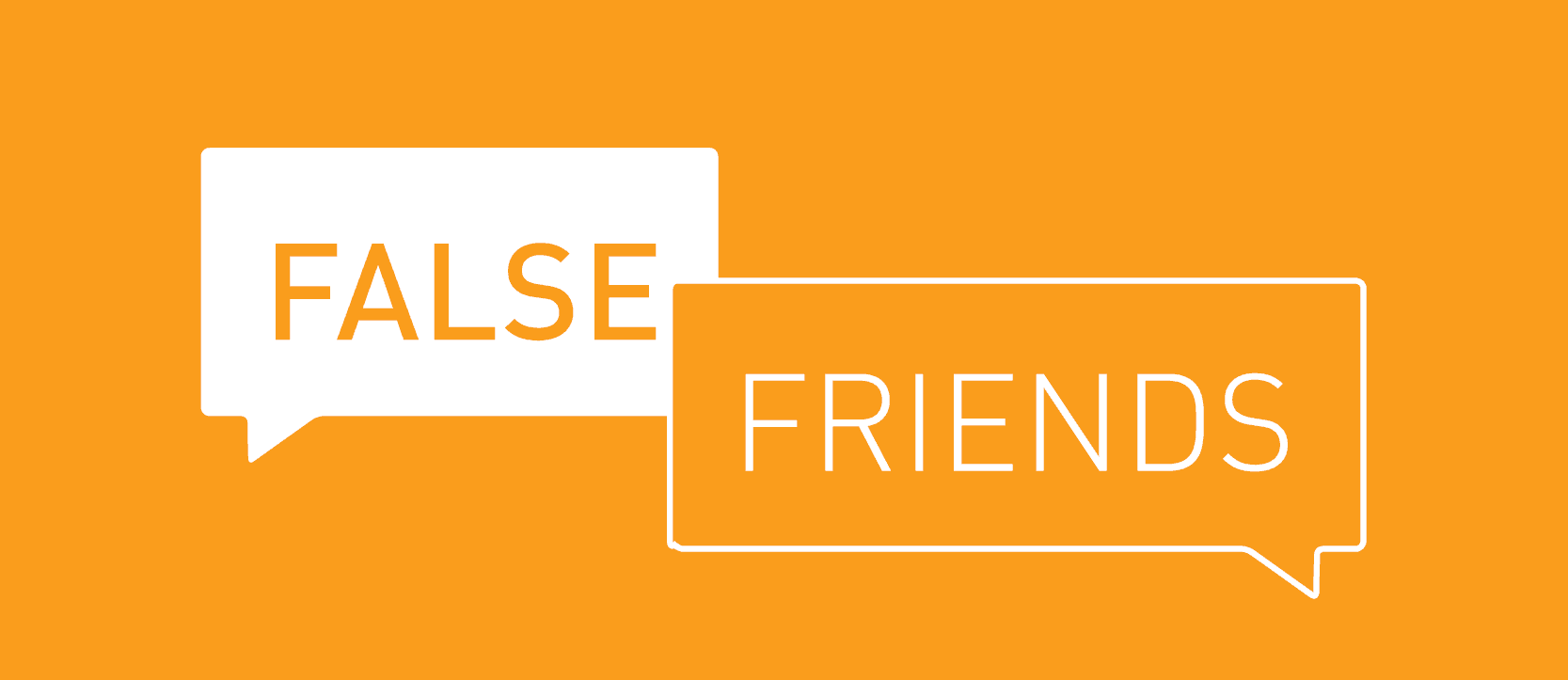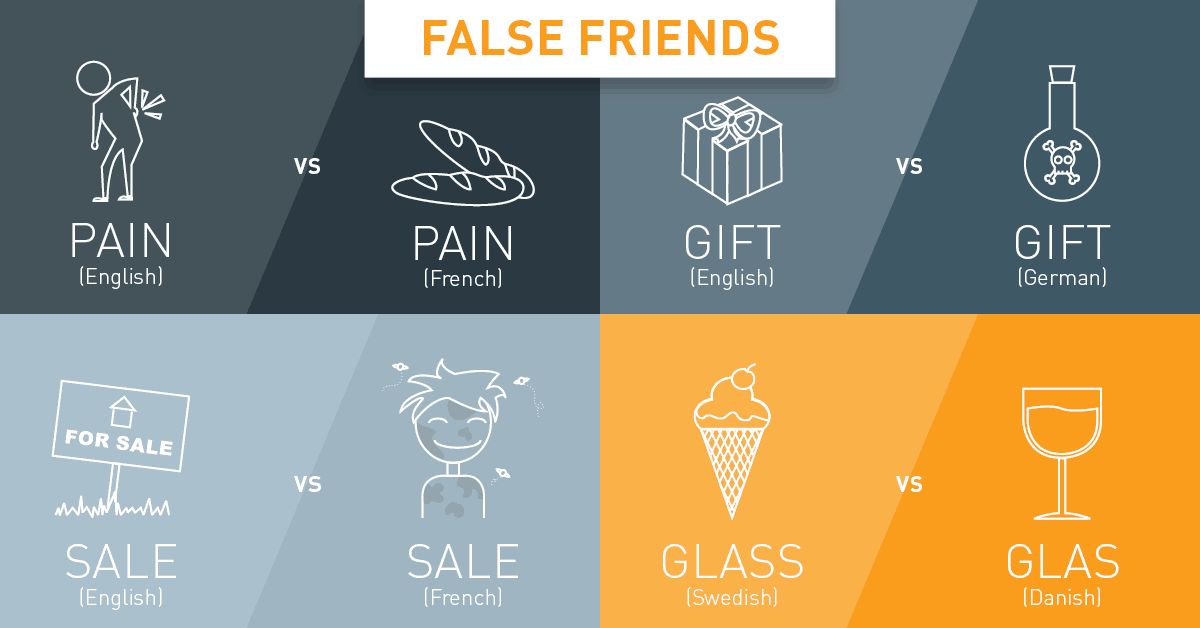
Know your ‘false friends’ and communicate successfully in other languages
When you communicate with people from other countries in another language than your own, you need to consider both cultural and language differences if you want to engage in a good dialogue. Cultural differences are particularly clear between countries that do not share the same historical and religious background. When you stay in such countries, you will for sure know that you need to think about how you greet and communicate with people if you want to show respect.
However, even between countries that appear to have a lot in common in terms of history and culture, there may be differences that you need to consider. If you do not consider these differences, you risk creating misunderstandings or finding yourself in an awkward situation that you did not intend to happen. However, it is hard to take into account such cultural differences if you are not aware of them. You therefore need to know the differences first. If you live in the country, you will gradually come to understand the cultural differences, but if you are only on holiday or meet new nationalities as part of your work, things are not as easy.
Besides cultural differences, you need to know the main differences between two languages. When you speak a language fluently, you will automatically know these differences, but if you are not as equally at home with the language as you are in your own language, you might use a word that means something completely different than you intended. These differences in specific words and their meaning between two languages are what we in English call ‘false friends’ or ‘faux amis’ in French.
What are ‘false friends’?
A ‘false friend’ is a word in two languages that on the face of it sounds or looks alike, but which does not share the same meaning or which may even mean the opposite.
Words that resemble each other can be found in all languages. Even the major languages like English, German and French. The reason is that several words in different languages have the same origin, like Latin.
Through the ages, historical events have also had an impact on different languages. Not least in Britain and France, where the impact has gone both ways. However, the impact did not just come from the major languages to the smaller languages, as exemplified by the Viking’s entry into England. This means that many Danish loan words can be found in the English language.
How does a ‘false friend’ occur?
When a word suddenly gets different meanings in two languages, although they have the same origin and appear alike, it is because language is a living organism and under constant change. In fact, over the years, a word can change its meaning for different reasons.
However, a ‘false friend’ can also arise even if the words do not have the same origin or are loaned from the same language. This is the case when pronunciation and spelling changes over time, making the words look alike.

Why is it important to know your ‘false friends’?
If you know the most important ‘false friends’ between two languages, you are well on your way to avoiding awkward or unfortunate situations when communicating with people from other countries in connection with your travels or work.
Imagine the misunderstandings that might arise if you write that your boss is ‘retarded’ in English, which in french means ‘delayed’. Or if you want to ask someone politely to help you and accidentally write ‘demand’ instead of the more neutral word for ‘ask’ in French.
When you as a Dane work with a Swede and he/she wants to ‘bolle’ some ideas, you should not take offence. It simply means to bring different ideas to the table and not having intimate sexual relations, which the word ‘bolle’ can mean in Danish.
If you want to learn more
In the following, you can see some funny examples of ‘false friends’ between two languages that may lead to misunderstandings if used wrongly.
For a more elaborate list of ‘false friends’ between English and German, English and French, and English and Spanish, check out this blog post: https://blog.lingoda.com/en/false-friends
Good luck creating good communication when communicating with foreigners!








